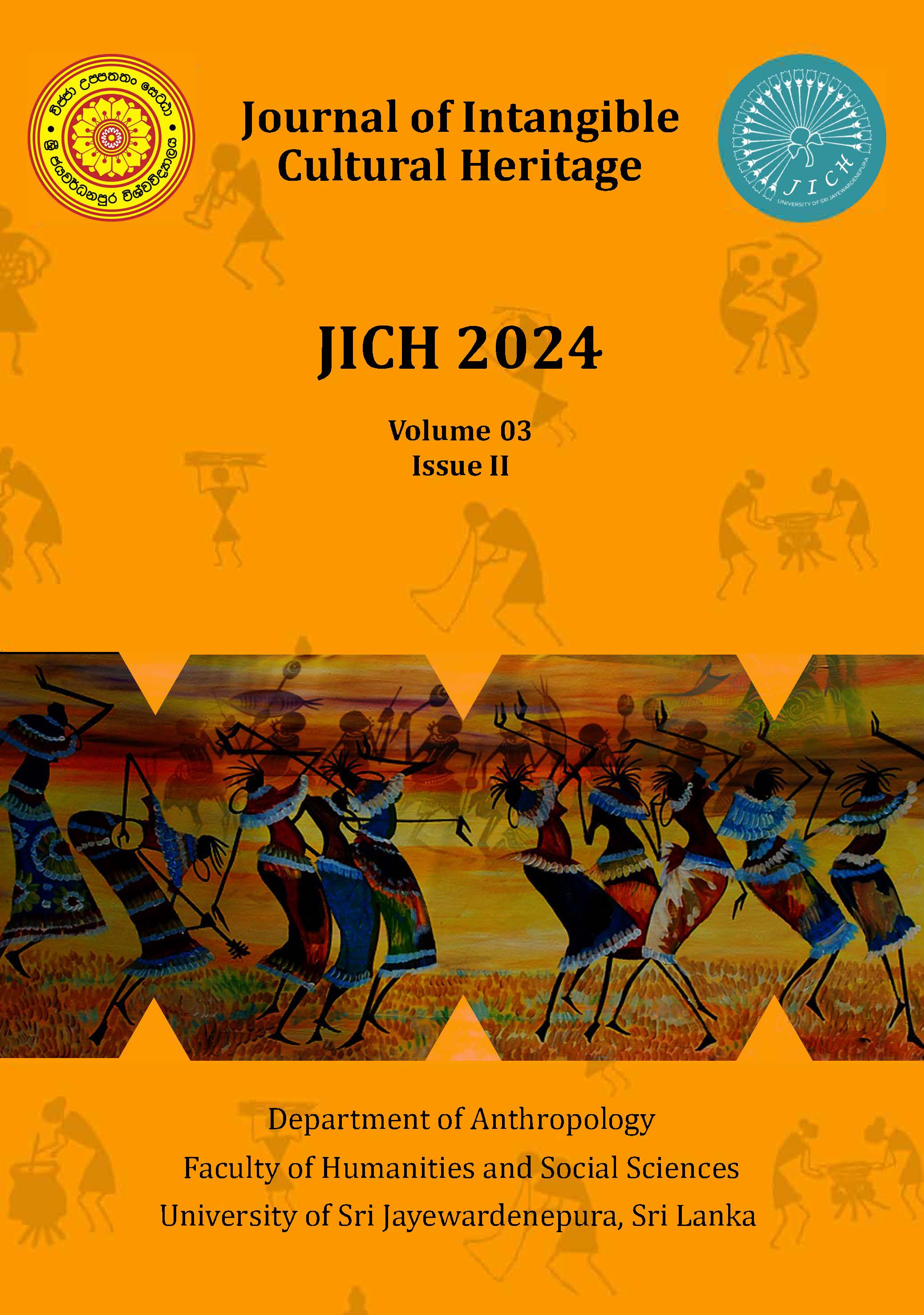A Medical Anthropological Study on the Use of Digital Technology in Traditional Medicine (Sinhala Medicine) in Sri Lanka
DOI:
https://doi.org/10.31357/jich.v3i02.7886Keywords:
Traditional medicine, Digital Technology, Traditional Sinhala Medicine, Medical AnthropologyAbstract
Traditional Sinhala medicine (TSM), an integral part of Sri Lanka’s cultural heritage, has been practiced for centuries. This system, rooted in indigenous knowledge, emphasizes natural remedies, herbal treatments, and holistic approaches to health. However, the advent of digital technology has brought significant changes to various fields, including traditional medicine (TM). This research aims to understand how digital technology is being used in TSM and its effects on this traditional practice. Can TSM be developed using digital technology to suit today’s society? is the research question in this research. As both qualitative and quantitative data have been used for this research, the research has been conducted under the mixed research method. Sampling was conducted at the Maharagama and Homagama DSDs (Divisional Secretariat Division) in Colombo district, Buttala and Siyabalanduwa DSDs in Monaragala district, Kahtagasdigiliya and Kekirawa DSDs in Anuradhapura district. In order to achieve the objectives of the research, 15 traditional medical practitioners (TMP) and 60 elderly people were selected from the study areas through purposive sampling method, and data were collected through interviews and observation methods. While digital technology has the potential to enhance the practice of TM, it also poses challenges related to authenticity, quality control, and equitable access. The study reveals that digital technology has significantly improved the accessibility of TSM authenticity and equitable access. To maximize the benefits of digital technology while mitigating its drawbacks, it is essential to develop strong guidelines and foster collaboration among practitioners, technology developers, and policymakers. By doing so, Sri Lanka can ensure the continued vitality and relevance of its TM practices in the digital age, preserving its cultural heritage while improving healthcare outcomes for its population.


